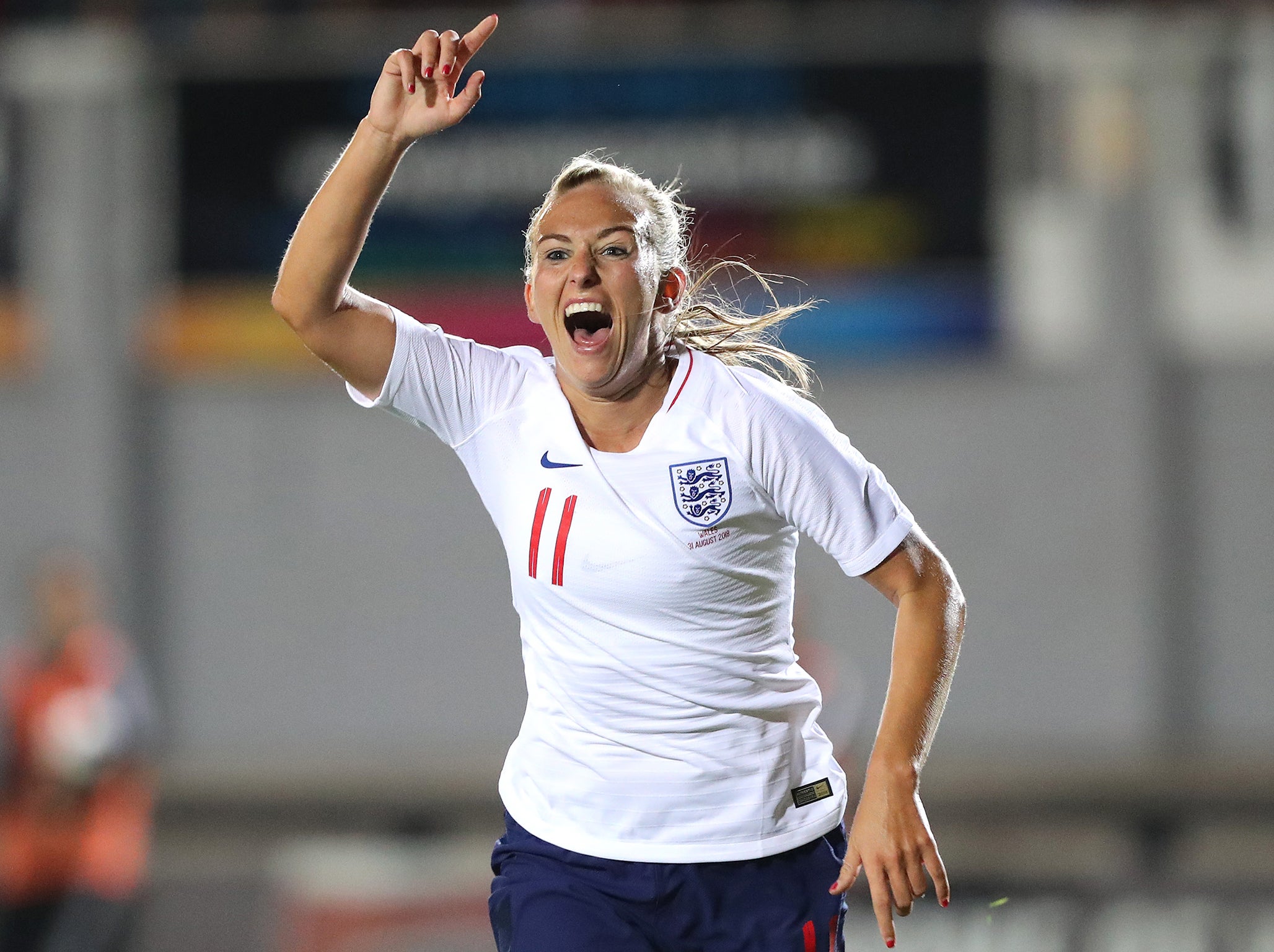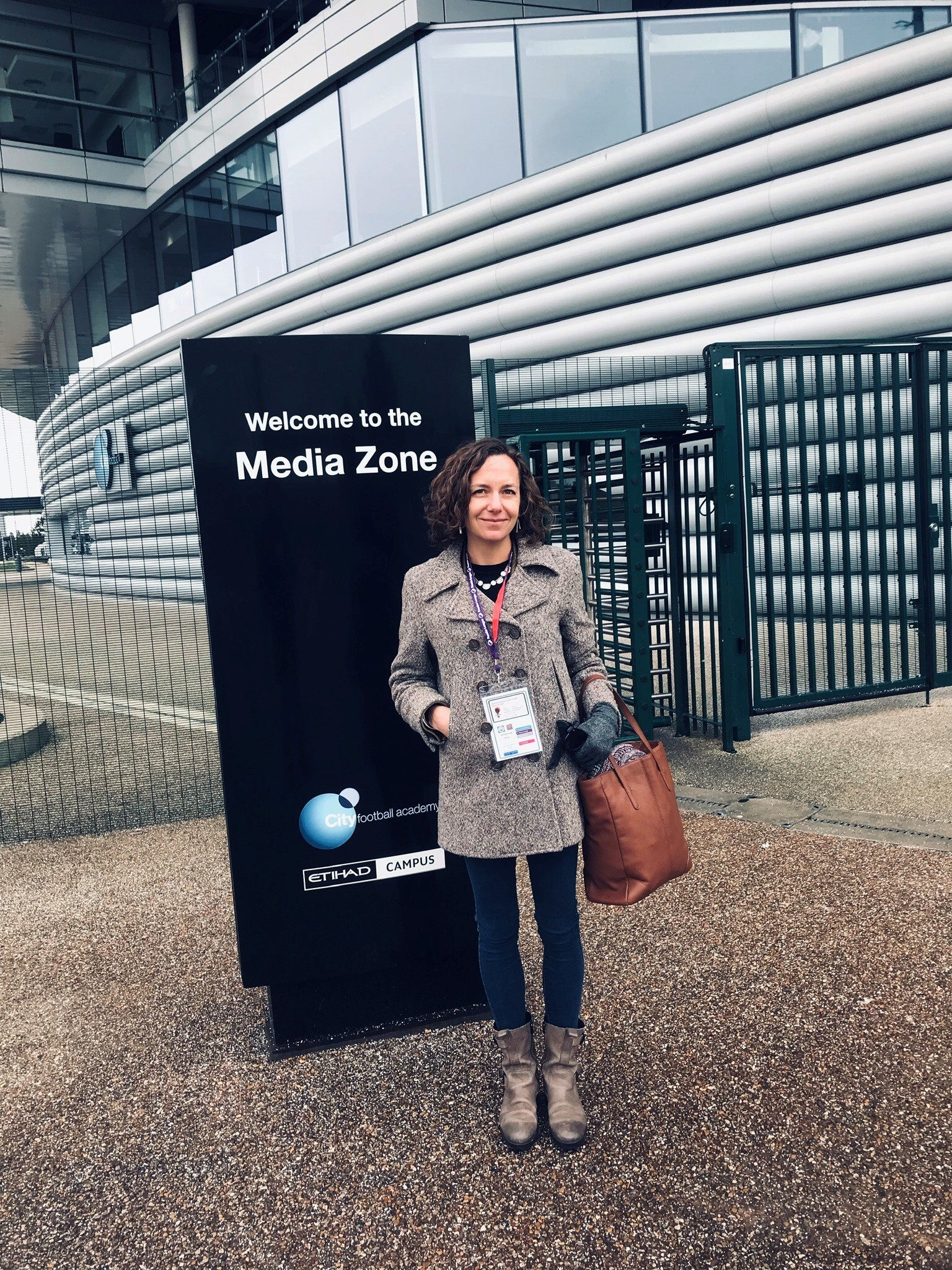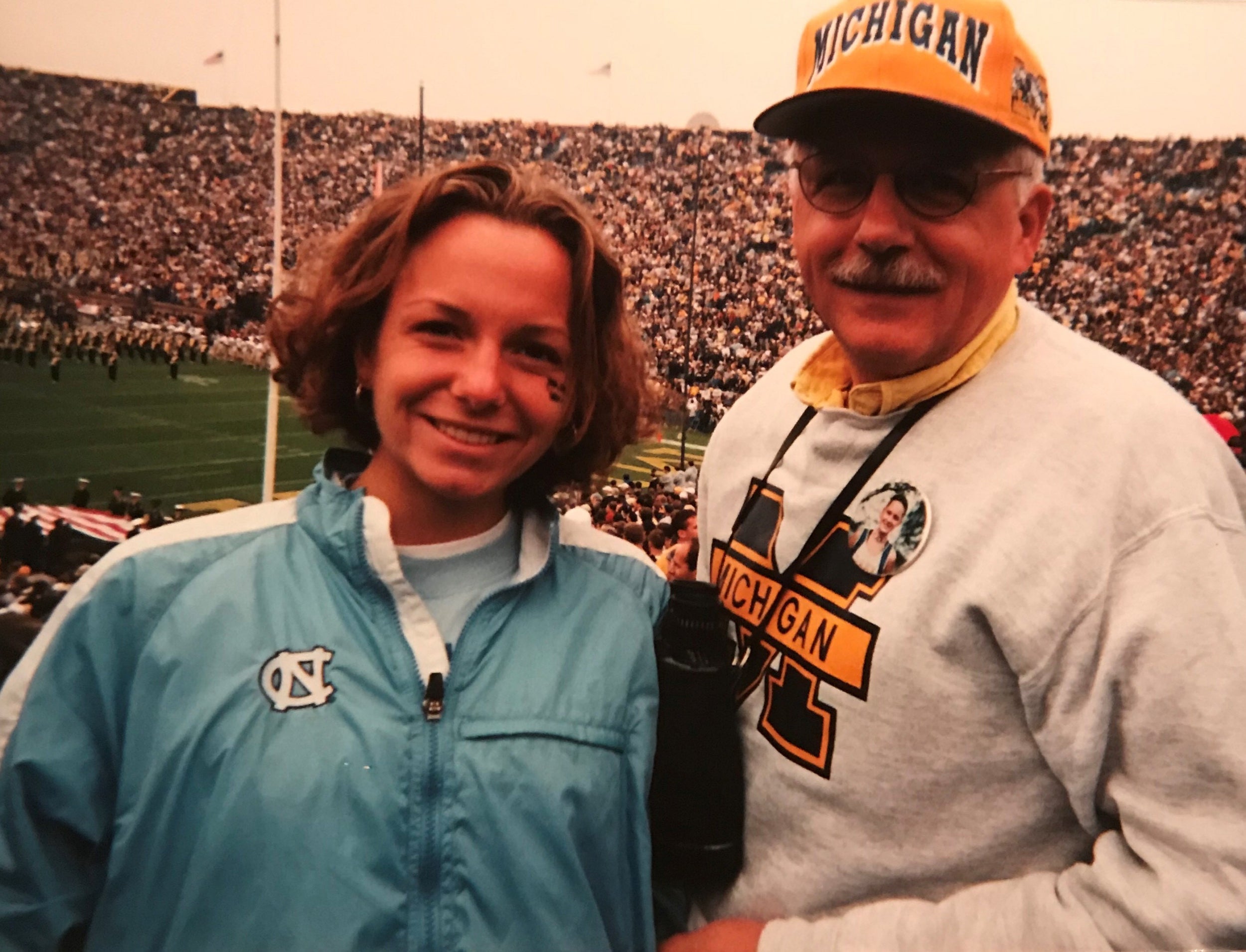Why are women still having to fight so hard for their rightful place in the male-dominated sporting world?
Ideas about who belongs – and who does not – do not stay in the sport space; they leach out and influence ideas about ‘natural’ ability and interest in broader society, says Victoria Jackson.

Last Sunday, when Manchester City hosted Arsenal at the Etihad Stadium, defeating the Gunners 3-1, I was there.
It was my first in-person Premier League viewing experience, in the birthplace of professional football, on the same day as my country’s professional football championship. (I agree that your game is the world’s game; never mind that our “Super Bowl” winners declare themselves “world champions.”)
The “firsts” did not end there. It was my first match outside the United States; my first trip to Manchester; even my first press pass. (I’m an academic.)
It’s fitting that all my “firsts” have taken place in this city of firsts.
My time in Manchester has had the markings and feel of a pilgrimage. So many great contributions to humanity were born here, in the world’s first modern industrial city. The first passenger railway. I took a train from London to get here! The first professional football league. I visited the national football museum! The first hipster reclaiming of gritty industrial city spaces in pursuit of authenticity. I passed by a group of men shooting up under a railway bridge along the canal path during my morning run!
This felt like a trip to mecca because I was born and raised a football lover. Both footballs. In the United States, girls play soccer – maybe even more than boys – and from the time I could walk I craved to run free in fields and play games. In soccer, I relished the sensations of movement and power, playing midfield, running everywhere on the pitch.
I also grew up a die-hard American college football fan, worshipping in Michigan Stadium, a place we lovingly call “the Big House.” (Capacity is officially 107, 601, but we’ve been known to cram in upwards of 115,000.)
For years I watched every game and participated in all the home game rituals and traditions with my dad, who was and still is a season ticketholder with the Wolverines. We always arrived early to watch teams warm up, listen to the PA announcer perform his introductory script, and cheer the team as they took the field, players jumping to tap the “M Club Supports You” banner at midfield.
We also participated in that peculiar American ritual of colour guard flag-raising, national anthem playing, and military flyover oo-ing ad ah-ing. In the 1990s I sat in the stands when Tom Brady – whose New England Patriots just won their sixth Super Bowl – was not the Tom Brady we know today, but was second, even third-string, backing up other future NFL quarterbacks at Michigan.
If Brits think their families’ and communities’ commitments to football clubs are more authentic than Americans’ because they go back further, they are looking to the wrong league and teams. Our connections and century-long traditions are not found in the NFL, but, rather, with our college football programs that – like your links to British football clubs – go back to the nineteenth century.
And our rivalries are just as fierce. Michigan’s rival of more than 100 years standing is The Ohio State University: my mother is a graduate and serious fan. She can tell you all the reasons why OSU traditions surpass the Wolverines’, and how Michigan coach Jim Harbaugh is a beautiful 0-4 versus her Buckeyes. I learned from my mom that women are real, authentic fans too.
Women play and follow football, many as seriously as men. But I experienced another first in Manchester. This was also my first experience in a traditionally male workplace that was still almost entirely, unapologetically, male. The only other women I saw in the press areas were serving food or working on the social media and communications teams for Man City and Arsenal. Pep Guardiola was so surprised to see a woman in the press room post-match that, when we made eye contact, his look of shock was priceless.

I get it because I’m a historian. This is your “manly” sport. In the United States, our “manly” sports, historically, also happen to be our most insular and quintessentially American sports: baseball and American football. So while they may not translate neatly, I realise we have similar man-zone problems. In my lifetime, both our countries have worked to improve diversity and inclusion in sports participation and sports industries. We both have a long way to go.
For all the claims of inclusivity and diversity that I saw in the national football museum on Saturday, I did not see it reflected in the match coverage on Sunday.
Here’s the thing. I know there are hundreds, thousands of women in the UK who grew up playing football, cheering for local teams. They know the game as intimately as men do. They write well. They’re clever and funny and bring unique perspectives to their descriptions and analyses of the game. So why weren’t they in the media area on Sunday, and why was Pep so surprised to see me?
Inclusivity does not happen on its own. It requires ever-present work; active, thoughtful decision-making by people in positions of leadership to commit to fundamental changes in their hiring practices, their mentoring cultures and professional growth opportunities, and their fostering of inclusive, healthy workplaces.
After all, the original construction of modern sport as a male domain was also man-made. (Ha.)
I teach sports history at Arizona State University, and this semester I’m teaching a course on the history of baseball, or, rather, what baseball history tells us about American history.
We explore baseball’s critical role in both promoting and affirming an ideology of the supremacy of white men to hold positions of political, economic, and social authority, both within the United States and abroad.
This was particularly so as the nineteenth century gave way to the twentieth when our country began to indulge its imperial ambitions beyond the North American continent. White men were fit to lead the world’s races, proving it through sporting prowess on the football gridiron and baseball diamond. This effort required pushing out people of African descent, and women, who had always been playing and loving baseball but now were forced to create their own separate – and often alternative or underground – teams and leagues to play in.
When Jackie Robinson, who would have been 100 this year, desegregated Major League Baseball, joining the Brooklyn Dodgers in 1947, he inspired future generations of young people to stake their rightful claim to sporting spaces despite being told their identities disqualified them.

Ideas about who belongs – and who does not – do not stay in the sport space; they leach out and influence ideas about “natural” ability and interest in broader society.
Here in England, for 50 years, from 1921 to 1971, the Football Association banned women from football pitches, declaring “the game of football is quite unsuitable for females and should not be encouraged.” By no coincidence, this was at a time that women were gaining confidence both within and beyond sport, securing the right to the vote, enjoying public spaces, and demanding equal treatment in homes and workplaces.

What have I learned on my trip of firsts to the city of firsts? Sports hold incredible potential and power for social transformation. Sports are about people, and about bodies, and, most of all, they make us vulnerable. All of us. It’s in the space of vulnerability and strength and power and times of joy and times of pain that we hold the capacity and potential to see the humanity in each other.
No matter the location on the planet, women athletes and sports professionals know that sports and politics have always mixed, because we’ve always had to fight so damn hard to play, to write about those who play, to coach and manage and take our seat in the boardroom. We won’t stop fighting to claim our right to play. On and off the pitch.
Join our commenting forum
Join thought-provoking conversations, follow other Independent readers and see their replies
Comments
Bookmark popover
Removed from bookmarks